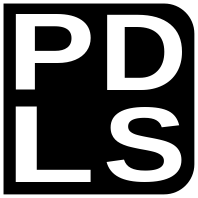
Pervasive Displays Library Suite —
User guide¶
Table of contents¶
The Pervasive Displays Library Suite is specifically designed for the Pervasive Displays screens, extension boards and development kits.

It provides a high-level interface to drive the e-paper screens with normal and fast update, supports capacitive touch and haptic feed-back. It is developed in C++.
Supported screens¶
The suite supports the screens
-
iTC monochrome with wide temperature and embedded fast update (film
K), -
iTC monochrome with touch ,
-
iTC colour black-white-red-yellow (film
Q);
the extension boards
and the development kits
-
EPD Pico Kit (EPDK-266) , which includes a Raspberry Pi Pico RP2040, an EXT3.1 extension board and a 2.66” monochrome panel,
-
E-Paper Development Kit Touch (EPDK-271-Touch) , which includes an EXT3.1 extension board and EXT3-Touch expansion board, a 2.71”-Touch monochrome panel with embedded fast update and capacitive touch, and
-
E-Paper Development Kit for Matter (EPDK-Matter) , which bundles an Arduino Nano Matter, an EXT4 extension board and a 2.90” high-definition monochrome panel with wide temperature and embedded fast update.
Legacy version 8
Legacy version 8 supports the screens
-
iTC monochrome with normal update (film
C), -
iTC colour black-white-red (film
J), -
iTC monochrome with embedded fast update (film
P).
General architecture¶
The suite contains three layers:
-
The application libraries include graphics with clock, gauge and histogram; GUI with label, button, check-box or slider; codes with bar- and QR-codes; Files to save and retrieve BMP files; and serial to generate and print header files on serial console;
-
The screen libraries provide additional screen-specific features for the Pervasive Displays e-paper screens. They rely on external drivers to manage the extension boards and screens;
-
The shared libraries provide the common classes of the primitives for text and graphics; the interface for the peripherals GPIO, UART, SPI and I²C; and the fonts libraries.
The notes and designs section contains technical notes and reference designs.
The appendixes contain a glossary, details on the used environment, an index, copyright, licence and disclaimer and other documents.
Documentation¶
The documentation consists on four parts:
-
User Guide
The User Guide focuses on how to use the different libraries, with commented examples.
-
Reference Manual
The Reference Manual lists all the objects and functions, with details for their parameters and returned results.
-
Technical Wiki
The Technical Wiki provides a gradual introduction to the e-paper technology and how to use it.
-
GitHub Repository
The GitHub Repository hosts the libraries and drivers for the Pervasive Displays screens.
Conventions¶
This website uses the following typographic conventions:
- Keywords and folders names are in
Terminalfont:
By default, the files are located under the folder
img.
- Code is displayed with
Terminalfont in a light grey box:
#include "PDLS_Advanced.h"
- Notes and warnings are displayed inside coloured boxes.
Danger
Warning
Info
Note
Example
- Applications are in Sans Serif bold font.
Open a Terminal window.
- Elements of the interface and menus are presented using Sans Serif bold font.
Call the menu File > Examples > PDLS_EXT3_Advanced_Global > Common_WhoAmI.
- Keyboard shortcuts and mouse actions are framed.
- Press H or ? to display or hide the help panel.
- A mentions an external link to the web.
For more information about the screen model, please refer to the Model name explanation and The different types E Ink imaging film pages on the Pervasive Displays website.
- Dates are stated as
DD MMM YYYY, withDDfor day,MMMfor month in plain letters, andYYYYfor year.
Release Winter 2023
Published 21 Dec 2023